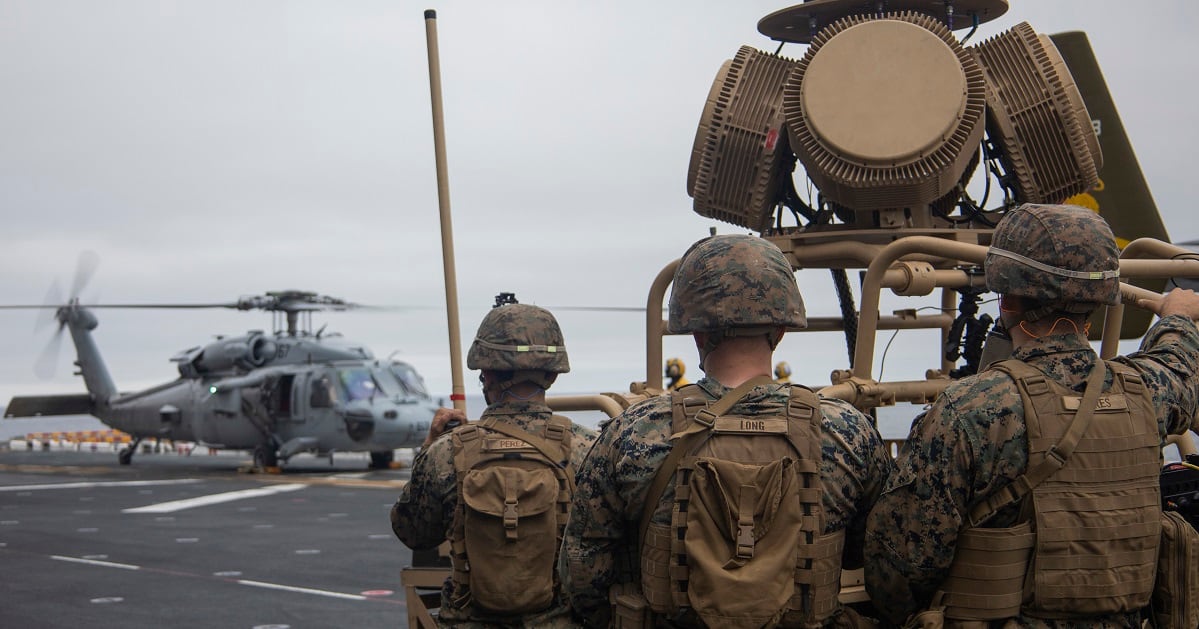Marines delivered fuel from a traditional crewed helicopter to an uncrewed autonomous helicopter in July for the first time in the history of the Marine Corps or Navy, according to the Corps.
During an exercise at Twentynine Palms, California, a Marine heavy-lift CH-53E Super Stallion provided fuel to an unmanned Navy MQ-8C Fire Scout, as a way to extend the range of the latter aircraft, the Marine Corps said in a Thursday Marine Corps story.
On July 31, the hefty Super Stallion transferred approximately 700 pounds of fuel to the Fire Scout, just under the uncrewed aircraft’s maximum payload, according to the story.
The Super Stallion can afford to hand off that amount of fuel: Its maximum fuel payload is 23,450 pounds. That means the Super Stallion can refuel the Fire Scout multiple times in hard-to-reach areas, keeping the Fire Scout going over longer distances and periods of time, according to the release.
RELATED

The Fire Scout typically operates from a littoral combat ship, a relatively small Navy vessel designed for operations that take place close to shore, the release said.
But in Service Level Training Exercise 5-23 in the California desert, Marines from Marine Heavy Helicopter Squadron 361 put the unmanned system to the test in a different kind of environment.
“We are in the desert, but the logistical, administrative, and most importantly the tactical lessons learned here are applicable to any clime and place,” Lt. Col. Nathaniel Griggs, the top acquisitions, construction and improvements officer at Twentynine Palms, California, said in the story.
The refueling occurred with both aircraft on the ground, the story said. The Fire Scout came from the Navy’s Helicopter Sea Combat Squadron 21.
In recent years, as it has stared down the potential threat of the technologically sophisticated Chinese military, the Marine Corps has emphasized reconnaissance and counter-reconnaissance, and the role of unmanned aircraft in particular.
The Corps also has contended with what leaders have acknowledged is an outdated, vulnerable logistics system. Fuel and other elements of logistics could come under stress in the more spread-out form of combat for which the service is preparing, new Marine doctrine says.
Irene Loewenson is a staff reporter for Marine Corps Times. She joined Military Times as an editorial fellow in August 2022. She is a graduate of Williams College, where she was the editor-in-chief of the student newspaper.





